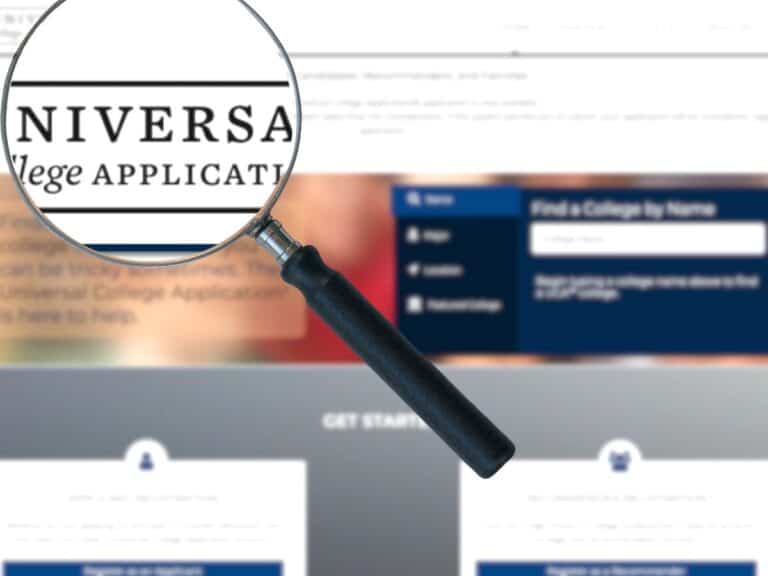Can You Send an Incomplete College Application?
Based on a US News report, a common reason why college applicants get rejected is the submission of an incomplete application. Missing recommendation letters, test scores and others will delay the review process.
The deadline is nearing but your application is still incomplete. Is it still a good idea to submit it and risk getting rejected?
In general, students may submit incomplete college applications. However, their records will remain incomplete until documents and other materials become available. It’s strongly recommended that they submit on or before the college application deadline, although they can still be submitted after the posted date.
Worried that you might not get an acceptance letter from your dream school not because of an unimpressive academic profile but because of an incomplete application? Read on.
In this post, I will talk about some of the most important matters regarding an incomplete college application.

Why Do Application Components Have Different Deadlines?
Colleges know that some supporting documents and additional/optional materials are not that easy to grab hold of, so many of these schools allow applicants to submit some components at a later date.
Before anything else, it’s important to bear in mind that not all colleges are that lenient in terms of the submission of the various elements of a college application, required or optional alike.
For instance, some may require everything to be on file on or before a hard deadline.
There are also those, fortunately, who are understanding enough to give applicants plenty of time to have their applications completed after submission — some can be as short as 5 to 7 days, while others can be as long as 2 weeks to 1 month!
Below, I will provide the different deadlines for several institutions, so don’t stop reading now.
Not all required and optional components are quick and easy for college-bound students to procure.
Recommendation letters, for instance, will have to come from either the high school counselor or teacher or both. As a matter of fact, some colleges require hopefuls to submit 3 of them or even more.
Test-required colleges, needless to say, require all applicants to submit their SAT or ACT scores. Whether self-reported or otherwise, students will have to wait for the standardized testing agency to make their scores available.
However, a timely submission can speak volumes about a student’s organizational and detail-oriented skills.
How Do You Know the Deadline for Each Document or Material?
It’s generally a good idea to submit a fully completed college application. However, if the deadline is nigh and some of the requirements are still unavailable, it’s much better to submit an incomplete application. Applicants should see to it that the missing components are on file before the deadline.
Different colleges have different application requirements.
Some require just one recommendation letter, while others require 2 to 3. Some do not need SAT or ACT scores, while others need them. Some programs require additional materials, such as a portfolio of one’s creative work.
In some instances, besides the hard deadline for college applications, required supporting documents and additional materials have different deadlines.
Typically, you will find a complete listing of them as well as their respective deadlines on the website of the college of your choosing, particularly on the freshman admissions page.
But there are times, too, when there’s no hard deadline whatsoever.
At Williams College, for instance, the admissions officers are willing to wait for the mid-year grades even past the February 8 deadline.
On the other hand, Bates College reminds students who can’t provide supporting application materials on or before the recommended submission dates to have them on file as soon as possible.
Just to give you a much better idea that some colleges and universities give applicants enough time to complete their college applications, here’s a listing of the deadlines for required components or supporting documents at some liberal arts colleges in the country, based on each school’s website:
- Barnard College – 11 days
- Bowdoin College – 15 days
- Carleton College – 5 days
- Colby College – 14 days
- Davidson College – 7 days
- Mount Holyoke – 31 days
- Spelman College – 14 days
- University of Richmond – 16 days
- Vassar College – 8 days
- Wellesley College – 7 days
Please take note that the deadline for additional application materials may change at any given time, so make sure that you carefully check with the college that you are applying to.

What Should You Do When Told Your Application is Incomplete?
As soon as the college notifies the student that his or her application is yet to be completed, the message should be read carefully. One must determine which materials are missing so that the appropriate sources may be contacted. It’s also a good idea to double-check submissions made and update the college.
Refrain from thinking that it’s time to turn your back on your dream of earning an undergraduate degree from your dream university simply because you were told that you have an incomplete application.
That’s not a death sentence — that’s an opportunity to gain admission to the institution!
Here are the steps to take the minute a college tells you that your application needs to be completed.
- Relax. Almost always, getting notified that your college application is incomplete won’t harm your admissions chances. No matter how the message seems to sound, the school is giving you the chance to submit every necessary component. Colleges receive hundreds of incomplete applications per cycle, so it’s not a biggie.
- Read. Make sure that you immediately check the entirety of the message. See which documents or materials you are still missing. Also, look for instructions on the proper way to submit them — some institutions may prefer getting late submissions through specific modes or portals.
- Contact. Some of the materials applicants need to submit have to come from teachers, guidance counselors, the College Board, etc. Politely get in touch with these entities to ask about the documents you need for your college application. But it pays to start obtaining various college application materials very early on.
- Update. First, thank the college for reminding you to complete your application instead of simply discarding it. Second, let the admissions office know the steps you have taken thus far. Don’t forget to mention when the required application component is expected to arrive so that it can be added to your record.
Just Before You Submit Your College Application
Nothing can make the college admissions process go as smoothly as possible more than the submission of an application complete with all the necessary supporting documents and other materials.
Alas, for some college-bound teens, this is easier said than done.
Not everything the institution of your choosing requires will come from your side — some of them will have to come from someone or something else, like a teacher, guidance counselor, or a standardized testing agency.
It’s the fact that you will have to coordinate with many entities that make college applications stressful and exhausting.
Fret not because colleges know this very well, which is why the vast majority of them allow applicants to submit the rest of the components later than the hard application deadline.
What’s important is that you take the necessary steps to complete your application ASAP.
Related Questions
Do less-selective colleges reject overqualified applicants?
It’s not uncommon for less-selective institutions to not accept overqualified students. The reason is not having an impressive academic profile per se but because the admissions officers may feel that these students will not accept the offer to enroll, which is bad for a school’s yield rate.
Can you ask a college why you were not accepted?
There is no rule stating that rejected students are not allowed to inquire as to why they were denied admission. Sometimes a college may simply give a generic response, while other times a college may not reply at all. It’s a good idea, though, to inquire as to what can be done to improve one’s chances.
Read Next: How to Get Out of an Early Decision Agreement
Disclaimer: The views and opinions expressed in this article are those of the authors and do not necessarily represent those of the College Reality Check.

![How to Apply to College with the Common App [Video Tutorial]](https://collegerealitycheck.com/wp-content/uploads/common-app-application-768x576.jpg)


